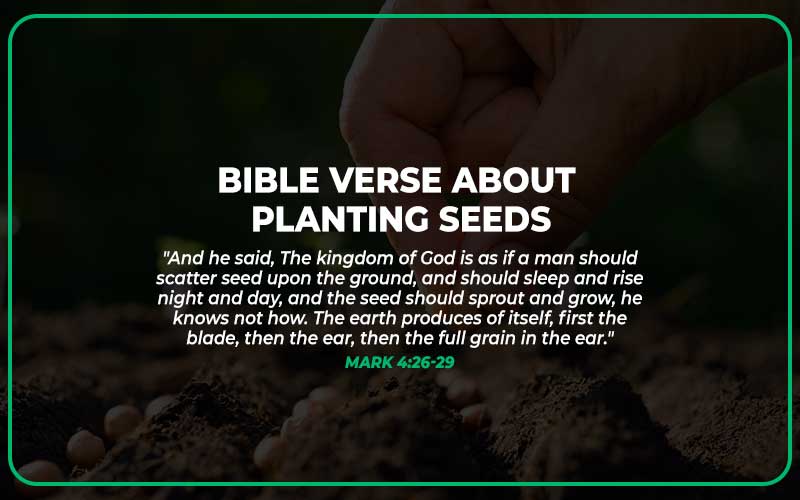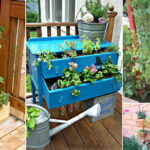Gardening and the cultivation of plants have been longstanding themes in various cultural narratives, including those found in the biblical texts. In the Bible, references to gardening often serve as metaphors rich with theological implications, reflecting human relationships with the divine, nature, and each other. These references emphasize not only the physical act of planting but also the deeper spiritual and moral lessons that can be gleaned from observation and participation in nature’s cycles.
In this exploration, we will delve into the biblical perspective on gardening, looking at scriptural verses that articulate the significance of planting seeds, nurturing growth, and harvesting fruits. Furthermore, we will consider the broader ethical implications for modern gardeners, particularly in relation to stewardship of the earth and community building.
Theologians have long posited that the act of gardening can be seen as a sacred duty, grounded in the creation narratives of both the Old and New Testaments. Christianity posits that humanity has been given dominion over the earth, a topic that invites extensive examination.
In examining what the Bible says about gardening, we will structure this discourse into several thematic areas: the theological foundation of gardening, the symbolism inherent in seeds and growth, and the ethical dimensions of stewardship and community.
The Theological Foundation of Gardening
From the opening chapters of Genesis, the Bible establishes a clear relationship between humans and the earth. God places Adam in the Garden of Eden with an explicit mandate to “till it and keep it” (Genesis 2:15, ESV). This directive is not merely about agricultural labor; rather, it underscores a profound responsibility towards creation. The Hebrew term for “keeping” in this context conveys notions of guarding, preserving, and cultivating. Thus, the act of gardening can be interpreted not only as a physical task but also a spiritual vocation.
Furthermore, God’s creation of plants is described as good, indicative of a divine endorsement for the cultivation of the natural world. This perspective positions gardening as an extension of one’s spiritual life—a reenactment of divine creativity. The garden becomes a microcosm of God’s kingdom, where the principles of growth, decay, and renewal play pivotal roles.
Moreover, throughout the Bible, various figures employed gardening as a metaphor to illustrate ethical and spiritual teachings. Jesus, for instance, frequently referenced agricultural practices in his parables. The Parable of the Sower (Matthew 13:1-23, ESV) illustrates how different environments affect the growth of seeds, representing myriad responses to divine truth. These teachings emphasize the importance of the conditions—both inner and outer—that facilitate growth, urging followers to cultivate their spiritual lives with the same care as one would with plants.
The Symbolism of Seeds and Growth
Seeds serve as a potent symbol within biblical literature. The act of planting seeds not only represents the initiation of life but also embodies the potential for transformation. “Unless a grain of wheat falls into the earth and dies, it remains alone; but if it dies, it bears much fruit” (John 12:24, ESV). This verse encapsulates the paradox inherent in growth—the necessity of sacrifice and loss for fruition.
The cultivation process, which involves nurturing, pruning, and even sometimes allowing for death, mirrors the spiritual journey of believers. Each stage—from planting to harvesting—offers a rich tapestry of experiences that can parallel the trials and triumphs of faith. As gardeners witness life spring forth from the soil, they are reminded of the hope and resilience that are integral to the human experience.
Moreover, the New Testament frequently uses the imagery of the vine and branches to elaborate on interconnectedness among individuals and with Christ. “I am the vine; you are the branches” (John 15:5, ESV). This relational metaphor reinforces the notion that genuine growth and fertility rely on a deep, abiding connection to the source of life—an ideal mirrored in agricultural practices where plants thrive only in healthy soil and favorably conditioned environments.
Ethical Dimensions of Stewardship and Community
The ethical implications of gardening extend beyond individual spirituality, as they intertwine with concepts of stewardship and communal responsibility. In the Hebrew Bible, the principles of gleaning as articulated in Leviticus 19:9-10 emphasize the need for social justice in agricultural practices, whereby farmers are encouraged to leave parts of the harvest for the marginalized. This highlights that agricultural practices are not merely an individual pursuit but a communal one, designed for collective upliftment and support.
In contemporary discourse, this biblical principle can inspire modern gardeners to engage in sustainable and equitable gardening practices, such as community gardens or the sharing of harvests with those in need. The idea that one’s garden can nourish others aligns with the biblical canon’s advocacy for neighborly love and community well-being.
Moreover, the concept of stewardship extends to environmental ethics, as the call to “till and keep” the garden inherently involves care for the earth. Today’s challenges—such as climate change, habitat destruction, and food insecurity—demand an enhanced awareness of our role as caretakers of creation. This perspective encourages a more profound commitment to environmental sustainability, urging individuals and communities to actively cultivate not only their gardens but also the health of their ecosystems.
Conclusion: The Intertwined Nature of Faith and Gardening
In reflecting on the biblical teachings surrounding gardening, one recognizes it’s much more than cultivating plants. The act represents faith’s journey, the communal nature of support, and respect for the environment. Integrated within the fabric of these scriptural truths are timeless lessons that challenge us to rethink our relationship with nature and each other.
Gardening, therefore, becomes a manifestation of a deeper theological truth—a dynamic interplay of growth, nurturing, and divine purpose that transcends the act itself. It offers reassurance that the practices of planting, tending, and harvesting mirror the spiritual cultivation necessary for a flourishing life within the broader tapestry of creation. As we engage in gardening, we embody both the challenge and the blessing of being stewards of God’s creation, forging connections both to our roots in the earth and to each other amidst the verdant beauty of our gardens.









Leave a Comment